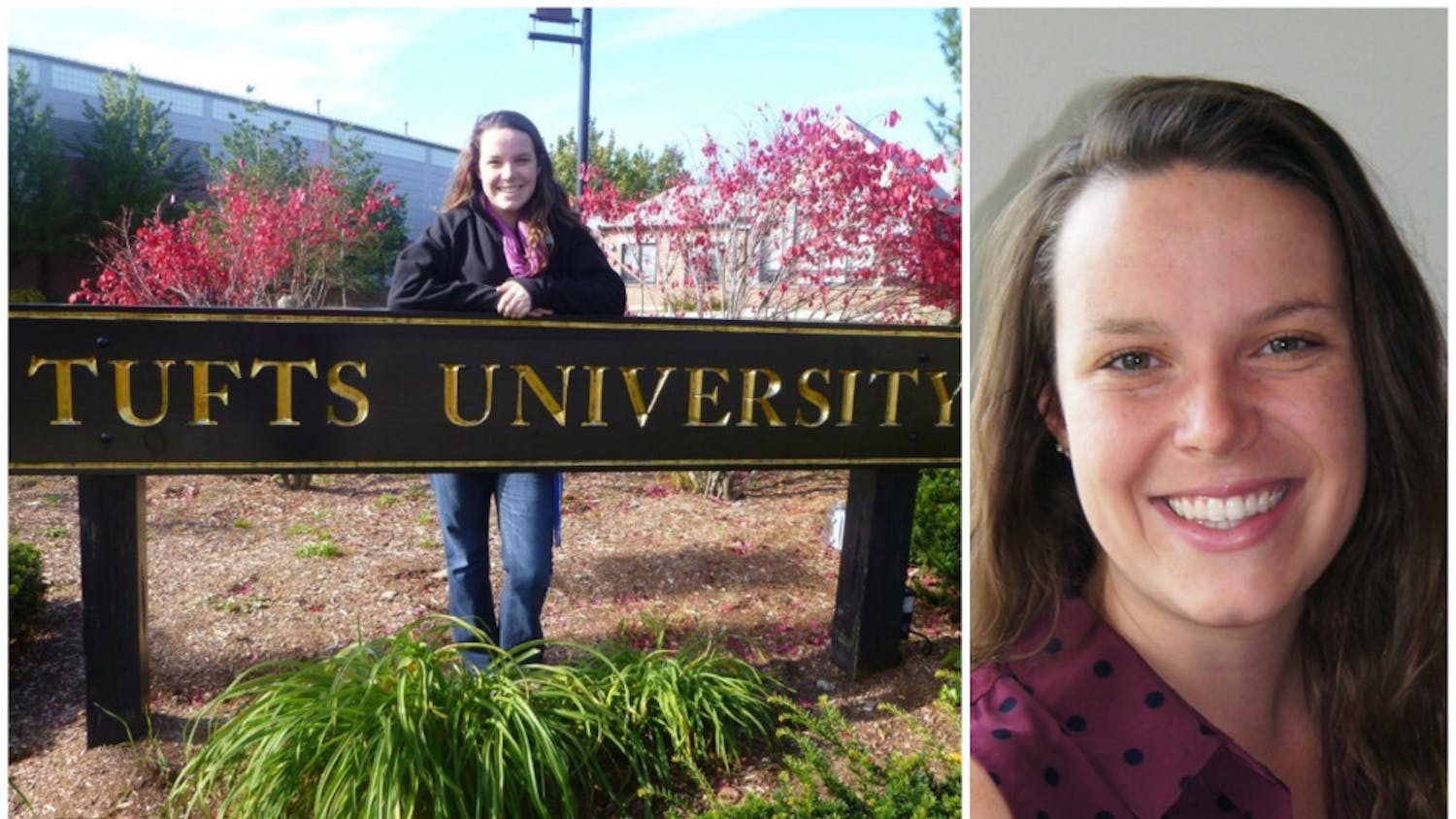The American Academy of Arts and Sciences (AAAS) inducted new members at a ceremony held on Oct. 12 at the Academy's headquarters in Cambridge, including Tufts Robinson Professor of Chemistry David Walt.
The ceremony welcomed the 197 new members of the Class of 2013, who came from all over the country and many different professions to join the honorary society, which was founded in 1780 by scholar-patriots including John Adams and James Bowdoin.
Mark Robinson, the chief operating officer of the AAAS, explained that the induction is similar to a commencement ceremony, an annual tradition that dates back to the society's founding.
"This formal ceremony - where all the people who have never been in the academy sign the book - [it's] a tradition that has existed for a long time," Walt, who is a Howard Hughes Medical Institute professor, said.
Founded near the end of the American Revolution, AAAS is an organization that aims to bring together some of the best and brightest minds to develop ways to translate knowledge into action.
"The AAAS is very broad in terms of the kinds of people that get elected. It expands [into] many fields, for example, there are writers, film makers, musicians and actors," Walt said. "The people whom you would know [elected into] my class include Sally Field, Robert De Niro [and] Herbert Hancock. These are obviously not only scientists, but people from the whole breadth of the society."
Walt was recognized in the Engineering Sciences and Technologies section for his groundbreaking work on fiber-optic microarray technology. Walt explained recent developments in his research.
"The practical application involved is developing an early detection of breast cancer using a blood test," Walt said. "Also, developing methods to detect ... defection in early stages even before the symptoms would occur. We hope to develop a test that could tell you are getting a flu in several days."
To provide better recommendations for public policy on key issues, the 4,600 fellows of the AAAS include scholars, practitioners and performers in various fields.
Ten members in this well accomplished group are affiliated with Tufts, including Professor Emeritus Martin Sherwin, Dean of the School of Engineering Linda Abriola, Professor of Music Jane Bernstein, Professor of Urban and Environmental Policy and Planning Sheldon Krimsky and Professor of Drama and Dance Laurence Senelick.
Robinson explained that the selection process is simple: the current members nominate candidates and then vote to elect the new fellows.
"The basic [setup] is that they have merits. Those who want to become a member of [the] academy ... [it's] based on their works and their interest in helping to create a better society," Robinson said.
For the most part, the AAAS holds meetings during the winter that are either topical in nature and represent relevant, hot-button issues of the day, or are reflective of one of the projects the academy is doing, according to Robinson. Past studies have focused on issues such as global security or education and are interdisciplinary in nature as a result of the depth of members' interests.
Robinson explained that the meetings are made possible in part because of three basic income sources: the support of members, foundations and endowments, but also noted that meetings persist because of the level of interest fellows express in certain topics.
"We will run the topics that are interesting to the membership and invite them to engage that way," Robinson said.
According to Madeline Caviness, Mary Richardson Professor Emeritus in the Department of Art and Art History and an AAAS fellow since 2007, the Academy's location in Cambridge heavily influences which members are able to attend.
"I think there is a geographic bias in the places they usually hold the meetings. It is the easiest for the people particularly from Harvard or Tufts to go to the meetings held in their building in Cambridge, Mass. and participate, compared to the people who live in California and Washington," Caviness said. "Although the geography doesn't affect the fellowship - we have people from all over the country - it affects the members [able] to get together and talk a little bit."
An important mission of the Academy is that, through its studies, publications and programs, it provides authoritative and nonpartisan policy advice to decision-makers in government, academia and the private sector, according to Robinson. Fellows associated with Tufts work with other members to draw on their experiences and research to discuss key issues that have a substantial impact on our society.
"We are an impartial, non-partisan organization. We are not a lobby organization; we don't have a cause," Robinson said. "What we are is a group that works to identify critical issues and draw [on] the cross-disciplinary membership to address these issues."
More from The Tufts Daily
Bite-Size Science: Sweetgreen's robotic model
By
Amber Abdul
| February 14





